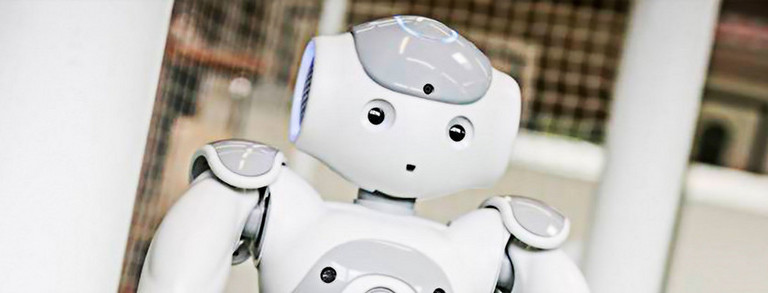Researchers at TU Dortmund University Study Visual Impairments
- Top News
- Research

The orthoptist and scientist Carina Schücker shows nine-year-old Emilia a chart featuring increasingly smaller optotypes and asks her to identify them. In another task, Emilia looks at a disk with parallel lines on it and has to recognize in which direction these lines are pointing. In another task, the young participant wears glasses with one green and one red lens and has to recognize shapes in red-green dot images, e.g. a circle or a square. The children taking part in the current study are hosted by the vision lab for two half days for testing. “On the first day, we test vision. Then, on the second day, the focus is on learning,” says Carina Schücker, academic staff member at the Research Unit Vision, Visual Impairments & Blindness, which is led by Prof. Sarah Weigelt.

Previous studies have already found that those with poorer writing and math skills often have slightly worse eyesight. “But there is still no precise data on how learning difficulties and visual impairments are actually connected. We hope to make a major contribution here with our research. Our initial findings show that the visual profiles of children with learning difficulties vary greatly,” says Carina Schücker. The study uses special materials purchased for a previous research project in the subject area.
Research and consultation
In addition to the research projects, another emphasis of the new vision lab is detailed visual and perceptual diagnostics for children and young people. The focus here is on children with suspected cerebral visual impairments (CVI). Visual impairments of this kind can occur if the processing of visual stimuli is disturbed, for example, due to a brain condition or developmental disorder. These impairments can, for instance, affect spatial perception, facial recognition or orientation in confusing or unclear situations.
“We very much hope that, with the new child vision lab , we can use our research to better understand cerebral visual impairments and close the large gap that exists in diagnostics and consultation,” says Prof. Weigelt, summarizing the goals of the vision lab. Families with children who are suspected of having visual impairments can use the extensive examination options as a valuable supplement to their ophthalmologist's diagnosis. To do so, they can make an appointment in the open clinic. Following the examinations, the scientists also give them specific tips on how to deal with the relevant visual impairment.
Participants wanted for MRI study
Researchers are currently looking for children, adolescents and young adults between the ages of 6 and 19 without visual impairments for an MRI study examining how the brain works when viewing different things. Children participants will be introduced to the MRI scanner with the utmost care. In addition to compensation, participants receive their own MRI scans and a digital model of their brain, which can be printed in three dimensions.
Registration via email to: lichtenberg-studietu-dortmundde
More about the child vision lab
Contacts for queries:





![[Translate to English:] Partner Four hands are holding the green logo of TU Dortmund University](/storages/tu_website/_processed_/1/d/csm_Partner_Nicole_Rechmann_KW_670eba0154.jpg)




![[Translate to English:] Forschung An apparatus with tubes in a laboratory](/storages/tu_website/_processed_/0/c/csm_Forschung_Juergen_Huhn_4fa3153b51.jpg)
![[Translate to English:] Studium Five students are sitting in a lecture hall. They are talking to each other.](/storages/tu_website/_processed_/c/9/csm_Studium_FelixSchmale_dbdbfb0dd7.jpg)





